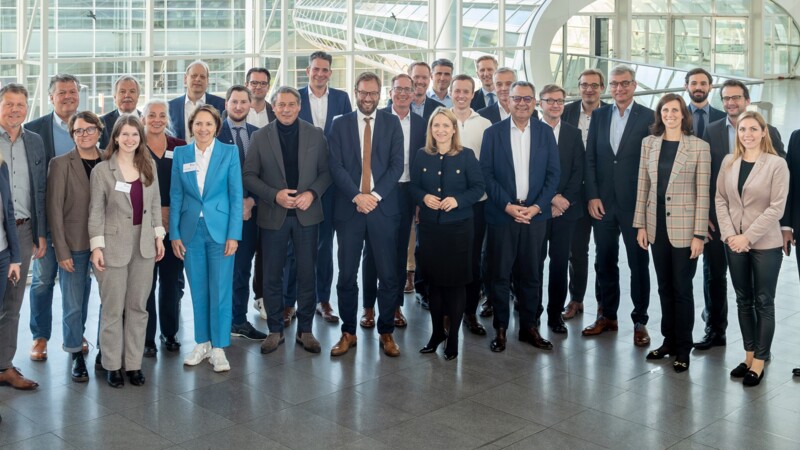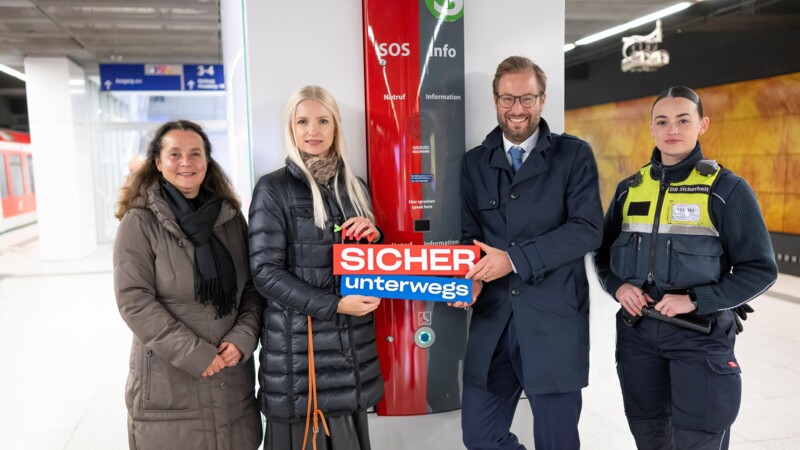The statutory minimum wage has risen from €12.41 in 2024 to €12.82 gross per hour.
The electronic patient file (ePA) is due to launch nationwide in early March making paper files a thing of the past for those with statutory health insurance. Patient data is now being collated digitally. In this respect, Hamburg is now a leading, model region along with the Franconia region and the state of North Rhine-Westphalia. The files should be available nationwide from March 2025. Electronic files will be mandatory throughout Germany from 2026.
Minimum wage
Mini jobs
In Germany, the term mini job refers to marginal, part-time, temporary work with a low wage. This year, mini-jobbers can earn €556 per month up from €538 in 2024. In February, commercial employers must submit the annual report on such staff to the mini-job centre.
Basic allowance
The basic, tax-free allowance, i.e., the income up to which no income tax has to be paid, will increase to €12,096 in 2025 and €12,348 in 2026.
Short-time working allowance
The maximum period of entitlement to short-time working allowance doubles to 24 months, but is limited until the end of 2025. From 2026, the regular maximum period of twelve months will apply.
Mandatory e-invoicing
From 2025, electronic invoices will be mandatory for transactions between companies within Germany. Thanks to the European Commission's VAT in the Digital Age (ViDA) initiative, e-invoicing modernises VAT legislation. By 2030 or 2032, an electronic reporting system will be introduced across the EU. Certain transitional periods will apply to e-invoices.
Accessibility
Products and services must be barrier-free. This already applies to public institutions and will be extended to private companies from June 28, 2025. The Accessibility Reinforcement Act effects e.g., ATMs and ticket vending machines, computers, websites, banking services and passenger transport. Information and various sensory channels with read-aloud functions or visual adaptations such as font size and contrast, must be barrier-free and accessible to the disabled. Exemptions will be available for very small companies. Hamburg is also focusing on easy-to-use, secure and barrier-free online services and will be boosted by the joint "Kern" project, which is based on a modular system for designing digital administrative procedures.
Bank transfers
Transfers can now be done in real time across the EU and should reach the recipient's account within ten seconds.
Standard chargers
A a single mobile charging port for mobile phones, tablets and cameras took effect across the EU this year. All new devices sold in the EU must now support USB-C charging. A standardized charging cable will apply to laptops from 2026.
CO2 price
The CO2 price has increased to €55 per tonne up from €45 and will hit the price of petrol, diesel, natural gas and heating oil as Germany aims to become climate neutral by 2045.
Bureaucracy
The Fourth Law on Red Tape Reduction has come into force. Domestic guests no longer have to fill out a registration form in hotels and bed & breakfast accommodation. The retention period for accounting documents has been reduced from ten to eight years.
Digital documents
Employment contracts can now be signed digitally. Employment certificates, which previously had to be printed out and signed by hand, can now be issued electronically. A qualified electronic signature is generally accepted and the recipient of the certificate must agree to the electronic form.
Deforestation ordinance
The EU Regulation on Deforestation-Free Supply Chains (EUDR) requires certain companies to meet additional due diligence obligations in their supply chains that go beyond the Supply Chain Act (LkSG). Large companies now have until December 30, 2025 and micro and small companies have until June 30, 2026 to implement the Deforestation Regulation.
Sustainability report
Environmental, social and governance (ESG) reporting for larger companies: Large corporations and companies will be required to produce a sustainability report and provide information on environmental, social and governance factors in their annual reports from the 2025 fiscal year. This will require digitised data collection processes.
Fewer cookie banners
A law restricting the use of cookies on the internet, for which Hamburg has long campaigned, will take effect in spring following the Bundesrat's approval. In future, users will no longer have to consent to the use of cookies repeatedly as consent or refusal will instead be permanently stored.
Sustainable logistics
The Hamburg Investment and Development Bank's (IFB Hamburg) "Sustainable Logistics" funding scheme helps SMEs to implement digital solutions that reduce greenhouse gas emissions and improves traffic flow, especially in city centres. The scheme is part of the European Regional Development Fund (ERDF) 2021-2027 funding period. Hamburg is investing €3.9 million of ERDF funds in the scheme.
mm/kk/pb
Sources and further information
More
Similar articles

Must-see events in second half of 2025

Hamburg unveils concept for UITP 2025

HVV announces plans for safer public transport in 2025
